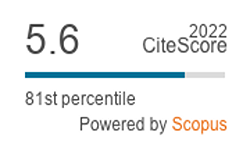The COVID-19 Pandemic and Diet Change
DOI:
https://doi.org/10.36877/pmmb.a0000203Abstract
COVID-19 is now considered one of the world’s greatest challenges. The sale of wild animals at the seafood market in Wuhan, China appears to be the source of this zoonotic disease. During the COVID-19 pandemic, plant-based diets became a preferred diet choice for many people. In this paper, we discuss that trend toward a plant-based diet across the globe and some of the reasons for the shift. We note that there was a rise in plant-based food sales and a simultaneous decline in animal-based meat sales. Sales of meat and seafood plummeted for many reasons, including distrust in meat due to fear of virus contamination, price increases, and also for ethical reasons. Marketing strategies used by meat-alternative companies may have also played a role. While there has been an ongoing trend toward plant-based diets in recent years, that trend seemed to accelerate during the pandemic with more available vegan venues and places with vegan options. Another reason that some people may have started exploring plant-based eating during the pandemic is because of the belief that such healthy eating will boost immunity or provide some other health-related benefit. Plant-based diets are also more cost-effective than diets containing meat, fish, and dairy. We conclude that significant changes need to be made regarding the use of wild animals and livestock in order to prevent future pandemics of zoonotic origin. As the world’s population grows, zoonoses may occur with greater frequency. Encouraging the adoption of healthy plant-based diets around the world with a simultaneous reduction in the use of animals as a food source are necessary and vital steps to prevent future pandemics due to zoonotic disease.
Downloads
Published
Issue
Section
License
Copyright (c) 2021 Hong Chuan Loh, Yin Kar Seah, Irene Looi

This work is licensed under a Creative Commons Attribution-NonCommercial 4.0 International License.
Author(s) shall retain the copyright of their work and grant the Journal/Publisher right for the first publication with the work simultaneously licensed under:
Creative Commons Attribution-NonCommercial 4.0 International (CC BY-NC 4.0). This license allows for the copying, distribution and transmission of the work, provided the correct attribution of the original creator is stated. Adaptation and remixing are also permitted.

This broad license intends to facilitate free access to, as well as the unrestricted reuse of, original works of all types for non-commercial purposes.
The author(s) permits HH Publisher to publish this article that has not been submitted elsewhere.



.png)

.jpg)
